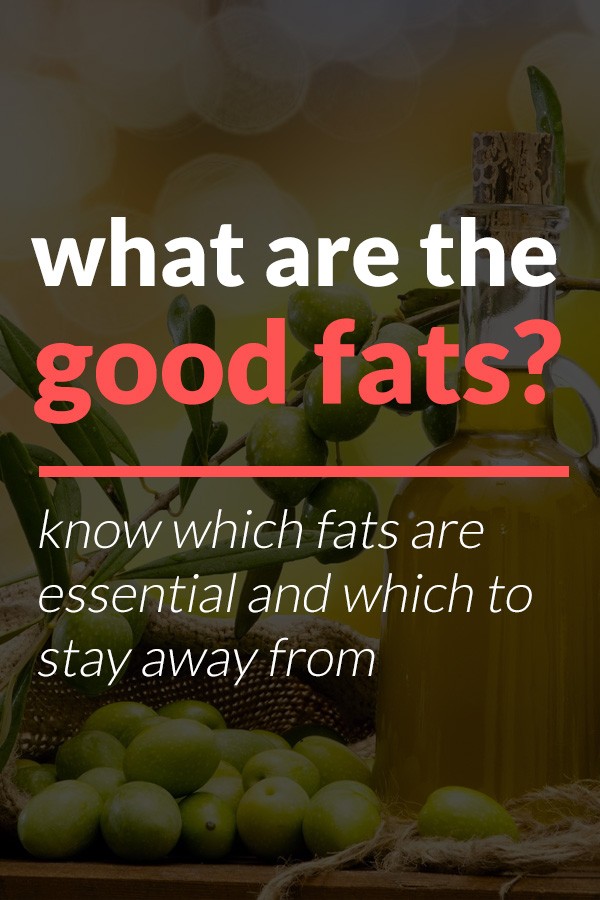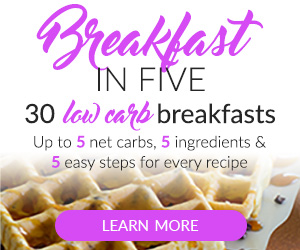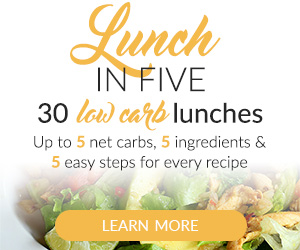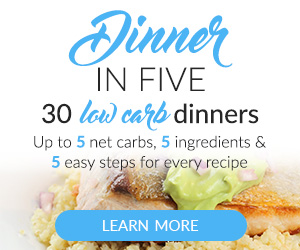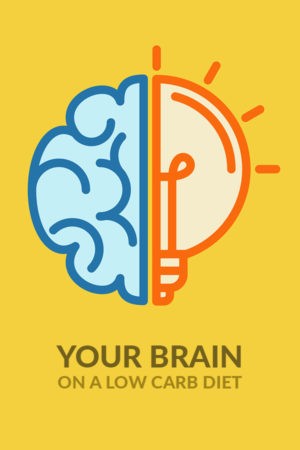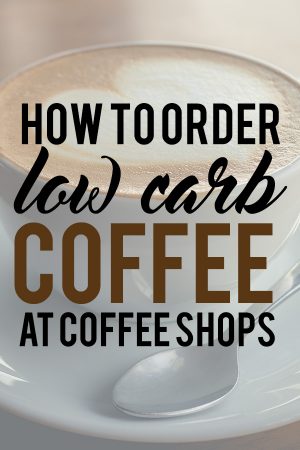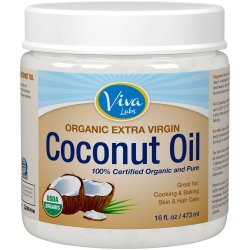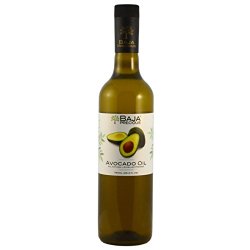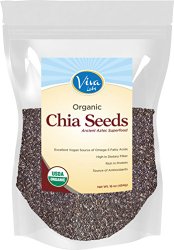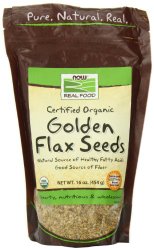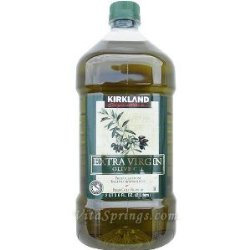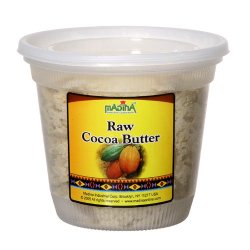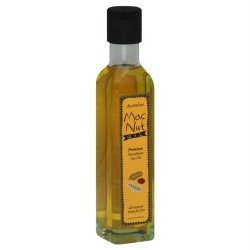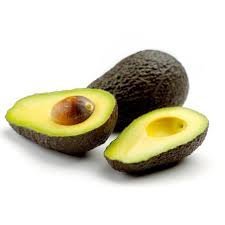What Are Good Keto Diet Fats on a Low Carb Diet?
Eating the right (healthy) fats is very important, especially on a ketogenic/low carb diet where fat makes up ~70% of your daily caloric intake.
All the important facts and supporting studies are included further down in this article but here’s what you need to know about good and bad fats in a nutshell:
Good Fats
- Saturated Fats = Good
- Found in red meat, butter, ghee, lard, cream, eggs, coconut oil (MCTs) or palm oil
- Monounsaturated Fats = Good
- Found in extra virgin olive oil, avocados, avocado oil and macadamia nut oil
- Natural Trans Fats = Good
- Found in meat from grass-fed animals and dairy products
- Natural Polyunsaturated Fats = Good (specifically Omega-3)
- Found in fish, fish oil, flaxseed and chia seeds
- Warning: Be wary of foods high in Omega-6 like nuts, legumes & seeds (eat in small quantities)
- Ratio of Omega-3 to Omega-6 should be as close to 1:1 as possible1
Bad Fats
- Processed Polyunsaturated Fats = Bad
- Avoid vegetable and seed oils including:
- Canola, Soybean, Corn, Sesame, Grapeseed, Peanut, Sunflower
- Avoid vegetable and seed oils including:
- Processed Trans Fats = Bad
- Avoid processed foods, fast foods, margarine and commercially baked goods.
IMPORTANT: Most of your daily fat intake should consist of saturated and monounsaturated fats.
Fat is identified by the amount that’s dominant in the mixture. Extra Virgin Olive Oil is about 73% monounsaturated fat so it is considered monounsaturated. Butter is about 65% saturated and thus a saturated fat. Below is a breakdown of each type of fat so you can start eating the right fats immediately.
-
Saturated Fatty Acids (SFAs)
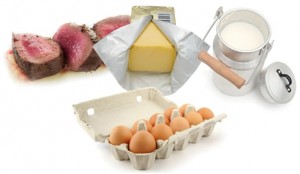
- Saturated Fats Don’t Increase Chances of Heart Disease
Saturated fats are great! Although the government has condemned saturated fats to fat hell, there have been many studies with extremely conclusive results (21 studies with a total of 347,747 subjects) showing that there is no significant evidence of saturated fat increasing risk of heart disease in any way.2 - Saturated Fats Increase Concentrations of Larger LDL
Cholesterol is extremely important to us. It is used to make hormones like testosterone and cortisol and is absolutely vital to our well-being.
Low Density Lipoprotein (LDL) serves as a taxi for cholesterol and takes it around our body through our blood. LDL consists of about four different sizes: large, intermediate, small and very small.3- Small and Very Small, Dense LDL: These are small enough to penetrate the arterial wall and responsible for premature coronary artery disease.
- Large/Intermediate LDL: These are large and are not associated with an elevated risk of heart disease.
A study has shown that a high saturated fat intake increases large LDL concentrations in your blood (and potentially lowers small LDL concentrations).4
- Saturated Fats Raise Concentrations of HDL
High Density Lipoprotein (HDL) is important because it takes cholesterol out of your blood and prevents build up in the arteries due to small and very small LDL. Saturated fats will improve your HDL/LDL ratio (the closer to 1:1 the better).5
Recommended? Yes
Found in: Red meat, Butter, Ghee, Lard, Cream, Eggs, Coconut oil (MCTs), Cocoa Butter, Palm oil - Saturated Fats Don’t Increase Chances of Heart Disease
-
Monounsaturated Fatty Acids (MUFAs)
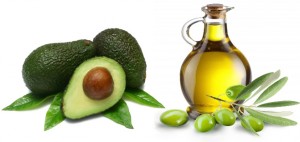
- MUFAs are well known to be healthy (with lots of studies supporting this fact and health benefits including (but not limited to):
Recommended? Yes
Found in: Extra virgin olive oil, Avocados, Avocado oil, Macadamia nut oil, Lard & Bacon fat, Goose Fat
-
Polyunsaturated Fatty Acids (PUFAs)
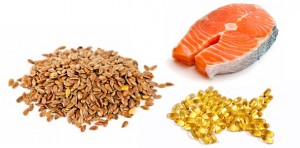
- Processed PUFAs (e.g. vegetable oils including soybean, corn, canola and sunflower oils) go through a ton of processing which involves many chemicals, solvents, bleach and more. Avoid these. They contain mostly Omega-6 fatty acids and we normally consume an abundant amount.
- Healthy PUFAs that come from natural sources like fish, fish oil, flaxseed and chia seeds are good and contain high amounts of Omega-3 fatty acids. Eat more of these. We should aim to have a 1:1 ratio of Omega-6 to Omega 3.10
Recommended? Only from natural sources
Found in: Fish, Fish oil, Flaxseed, Chia seeds -
Trans Fatty Acids (TFAs)
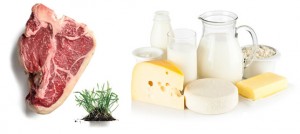
- TFAs are notorious for being the most unhealthy form of fat available to us. This is mostly true.
- Hydrogenation: a process which helps stabilize polyunsaturated oils to keep them from becoming rancid. These hydrogenated fats are used mostly in processed foods, fast foods, margarine and commercially baked goods. Don’t eat this type of fat or these foods. Processed TFAs cause coronary heart diseases and are associated with a multitude of long-term health problems like obesity, depression and breast cancer.
- Natural TFAs: Can be found in dairy fat and grass-fed animals (they will have higher levels than grain-fed animals). This type of trans fat is actually good for us and provides protection against cancer, reduction of obesity and hypertension, and many other beneficial biological effects.11
Recommended? Only from natural sources
Found in: Dairy fat, Grass-fed animals
It’s important to eat lots of fat (especially on keto), but the right kind of fat. Foods that are naturally high in fat are best like meat, fish, dairy and nuts. Olive oil and avocado oil are best for cold use and light cooking. Butter (including ghee), bacon fat and coconut oil are best for high-heat cooking.
You can get many of the recommended products below.
NUTRITIONAL DISCLAIMER
The content on this website should not be taken as medical advice and you should ALWAYS consult with your doctor before starting any diet or exercise program. We provide nutritional data for our recipes as a courtesy to our readers. We use Total Keto Diet app software to calculate the nutrition and we remove fiber and sugar alcohols, like erythritol, from the total carbohydrate count to get to the net carb count, as they do not affect your blood glucose levels. You should independently calculate nutritional information on your own and not rely on our data. The website or content herein is not intended to cure, prevent, diagnose or treat any disease. This website shall not be liable for adverse reactions or any other outcome resulting from the use of recipes or recommendations on the Website or actions you take as a result. Any action you take is strictly at your own risk.
- Keto-Friendly Food Swaps for Common Ingredients - July 11, 2023
- Keto Diet and Acne: Reducing Breakouts and Promoting Clear Skin - July 9, 2023
- Can the Keto Diet Help with Epilepsy? - July 7, 2023
